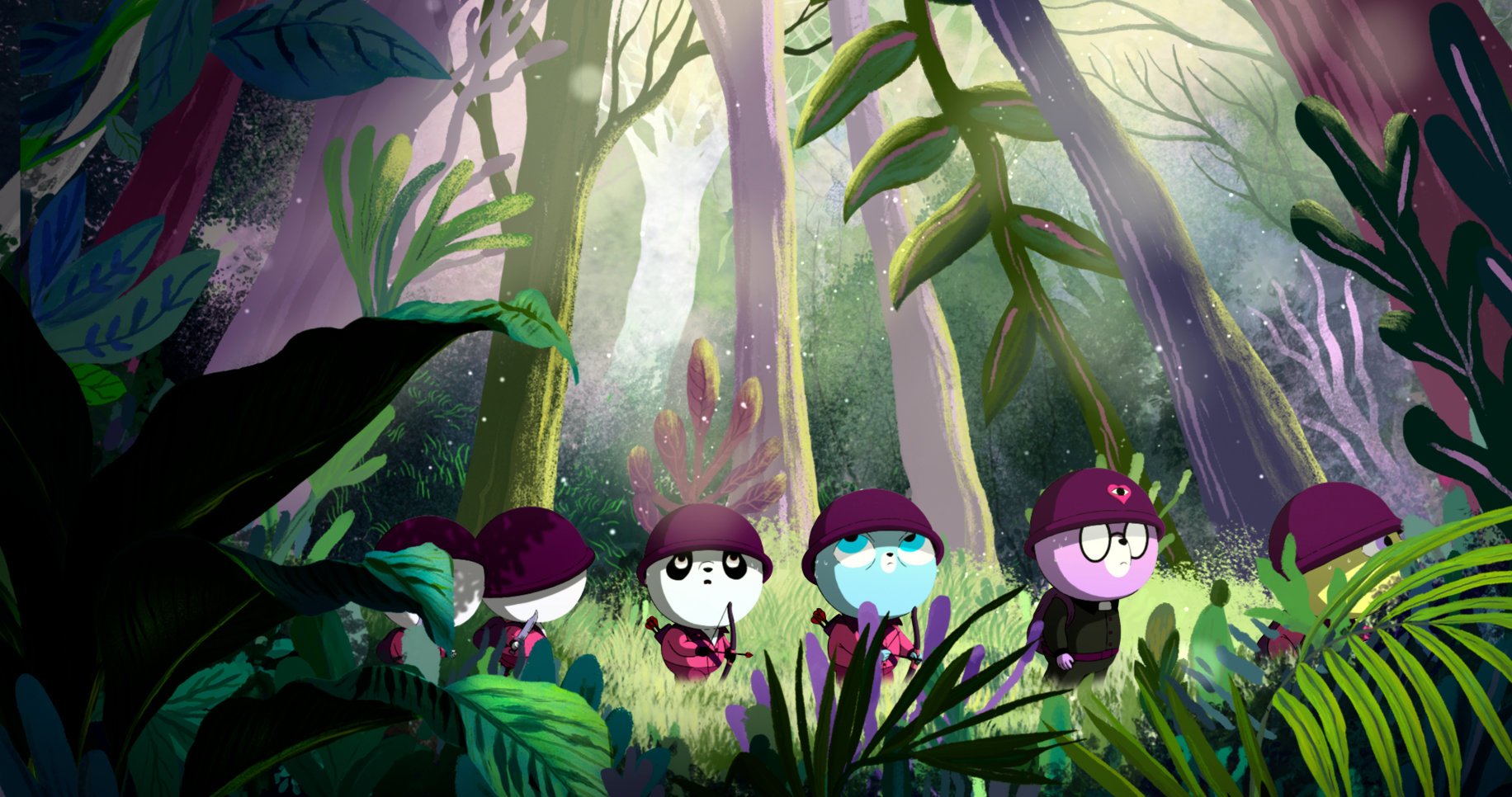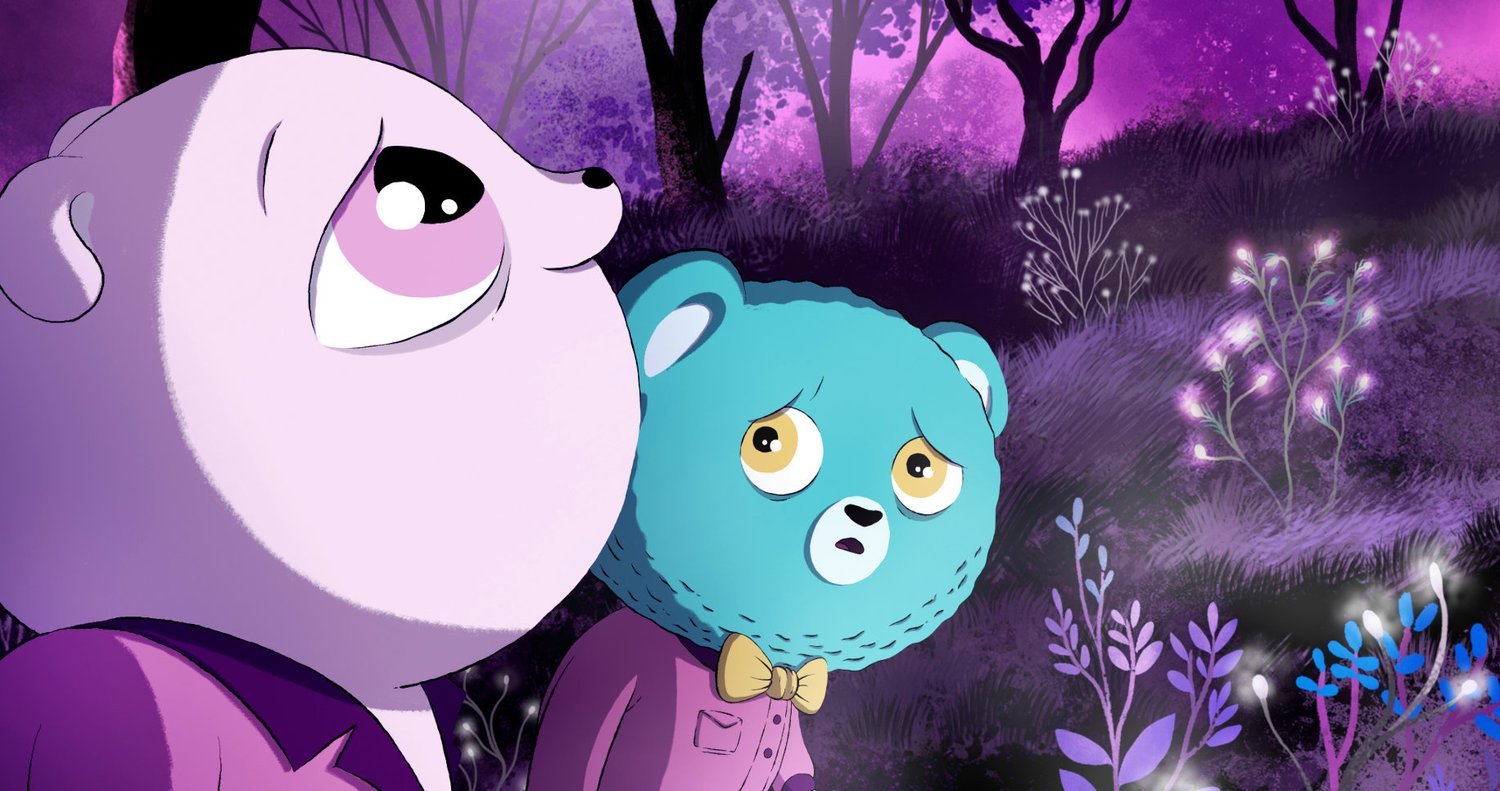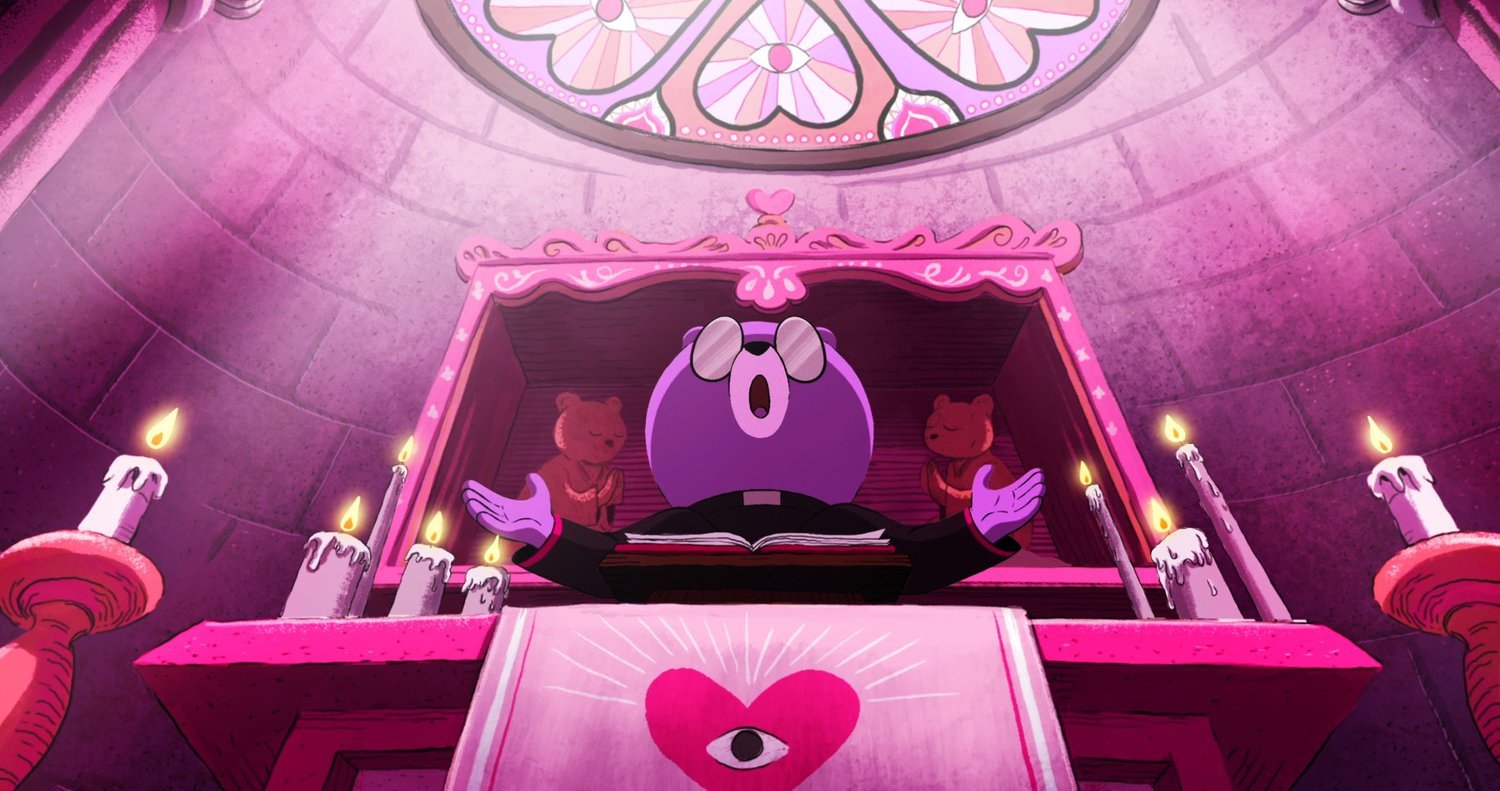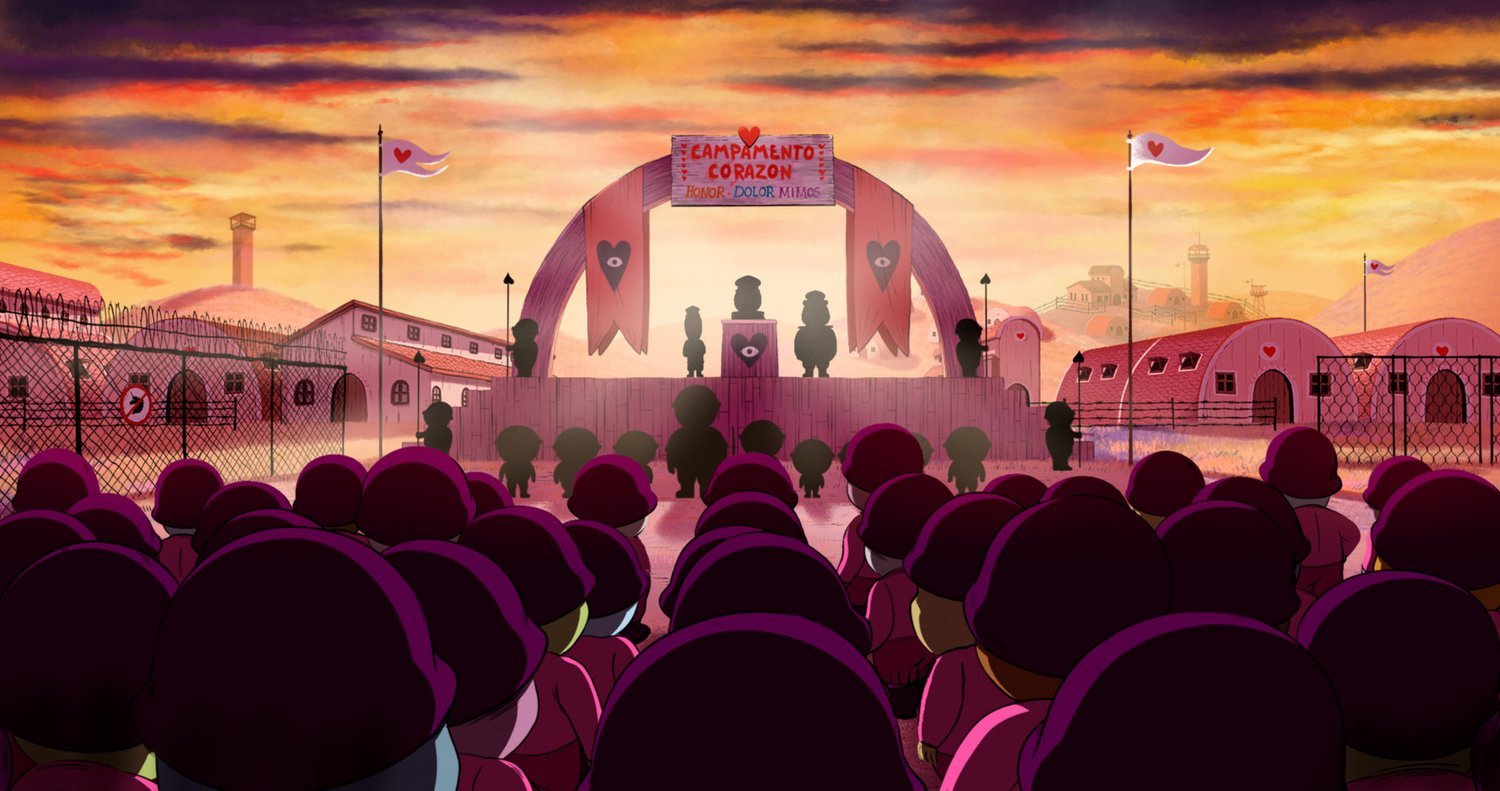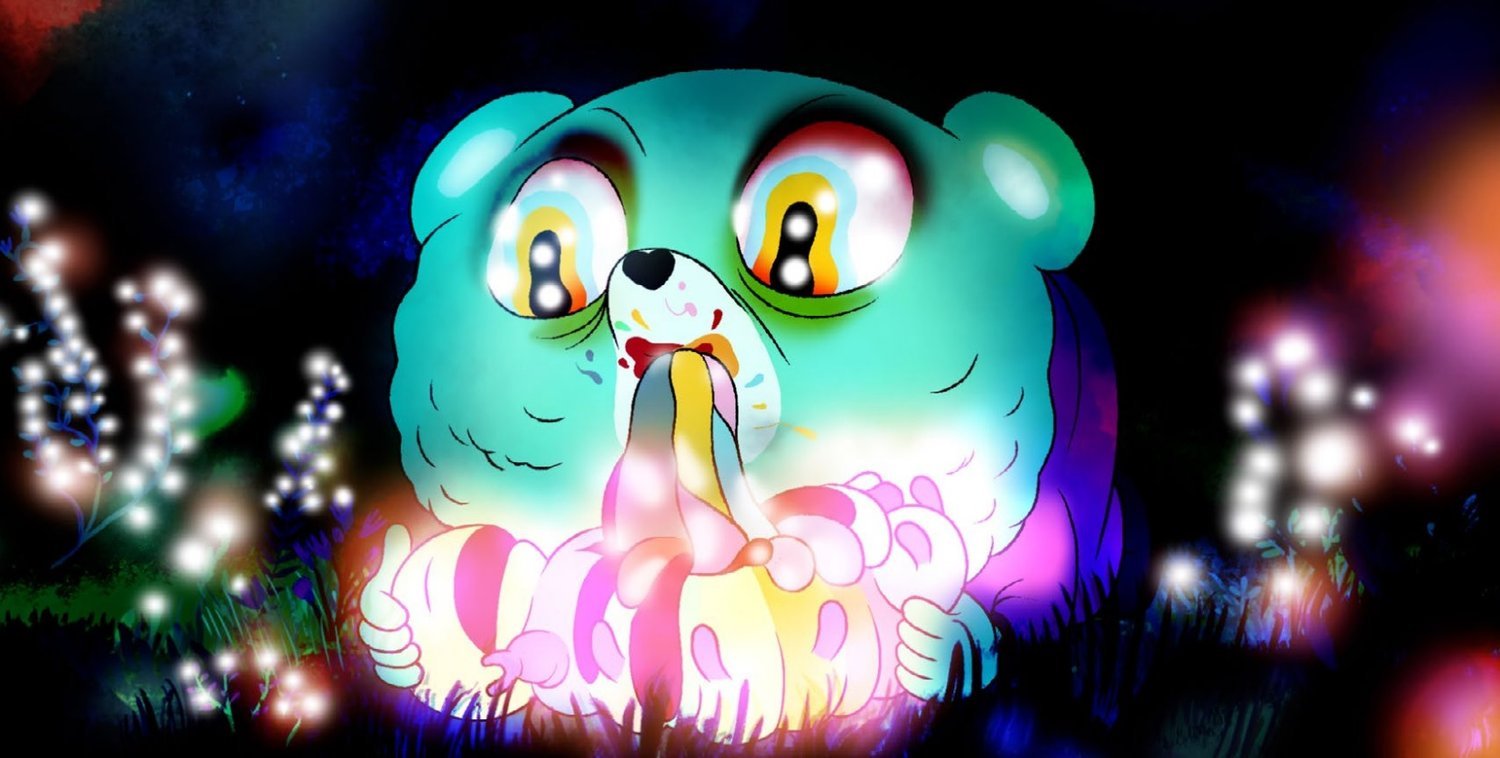'Unicorn Wars' Review: Gory Violence and War Through The Eyes Of a Teddy Bear [OIAF 2022]
an animated feature chronicling bloodthirsty teddy bears and environmentalist demon unicorns that’s just as wild as it sounds.
Animation is classically stereotyped as something “for kids”, but for many decades, there have been television shows and films that make use of this medium and seek out a strict 18+ audience. Some examples of this are mainstream, like Family Guy or The Simpsons, or even Bojack Horseman – and while these shows are different, they all have one thing in common – they are television series. Adult animation in film is often neglected, despite there being some really valuable films out there to be seen.
Unicorn Wars is exactly this – an animated film geared toward adult audiences that holds some important messages (paired with trippy animation and some cartoon gore). This film was written and directed by Alberto Vázquez, a Spanish comic book artist and award-winning filmmaker. Unicorn Wars is only his second feature length film, but he is clearly a confident artist with the experience he has with his creation of short films that have earned him multiple Goya awards. For those that are unfamiliar, the Goya Awards are Spain’s annual film awards, or their version of the Academy Awards, so this is quite an accomplishment.
Unicorn Wars follows religious teddy bear soldiers as they train and finally attempt to take back the forest, a land they previously thrived on before it was taken over by the unicorns. With these characters, it may seem this is a film suitable for children, but these animals are far from cute and cuddly, despite what they themselves might claim. The gore reaches extreme levels, with characters brutally mauled and displayed for shock value.
The voice acting is satisfactory, and while not impressive, doesn’t detract from the film. Some characters have more emotional range, while others are more stilted, adding to an emotional disconnect between the viewer and the film. There are multiple flashbacks of two of the central characters – teddy bear brothers Bluey and Tubby – and they work so hard to try to make the viewer feel something it becomes a little exhausting to watch. There are moments that land, but these scenes take up so much of the already tight runtime that they feel slightly unjustified. At times, the meaning behind these scenes becomes convoluted – is it the teddy bear species hellbent on religion that is the problem, or is it just Bluey, the psychotic soldier?
This film is chock-full of themes, covering as much as it can in its (too) short 91-minute runtime. They range from vehement anti-war sentiments through a satire of both army life, conflicts, and religion. It warns of the dangers of vanity, pride, and jealousy, and just when you feel confident in the overarching message, the importance of the environment is stressed, as well. Too much is going on in this movie to truly affect a viewer and impact them to the point where they must face a theme head-on and consider it for themselves. This is disappointing, because it seems Vázquez has a lot of ideas, but Unicorn Wars is just too stuffed.
With more experience with feature length films, this filmmaker may be able to create something great – his passion is clearly there, but without reigning in his reach, he comes across as more muddled than anything else. A lack of subtlety in his themes just reinforces this view.
The animation is beautifully done, with otherworldly colours and fantastic character design. However, even the quality of the appearance of this film is not enough to evoke an emotional response from a viewer. Perhaps it is the rushed runtime, or the awkward scenes where one isn’t sure whether to laugh or tear up, but it is difficult for a viewer to invest themselves in the story or these characters. It’s a fun time, with moments reminiscent of Happy Tree Friends, but it unfortunately lacks the necessary depth.
The ending is the best part of this film. Without giving too much away, it keeps itself simple, and speaks for itself in its meaning. It lands this thought-provoking conclusion by relating it back to the viewer so seamlessly, and successfully achieves the ultimate goal of a film – to follow the viewer home with them.
Overall, if not already well-versed in adult animation, this may be a strange introduction. The childish characters so violently portrayed may come off as disorienting to some, but those on the adventurous side may enjoy this depraved film so against real bloodshed that it resorts to showing the worst acts possible. With a more focused lens and less forced emotion, this could have been a great film, but it’s clear Vázquez is a filmmaker to watch.

